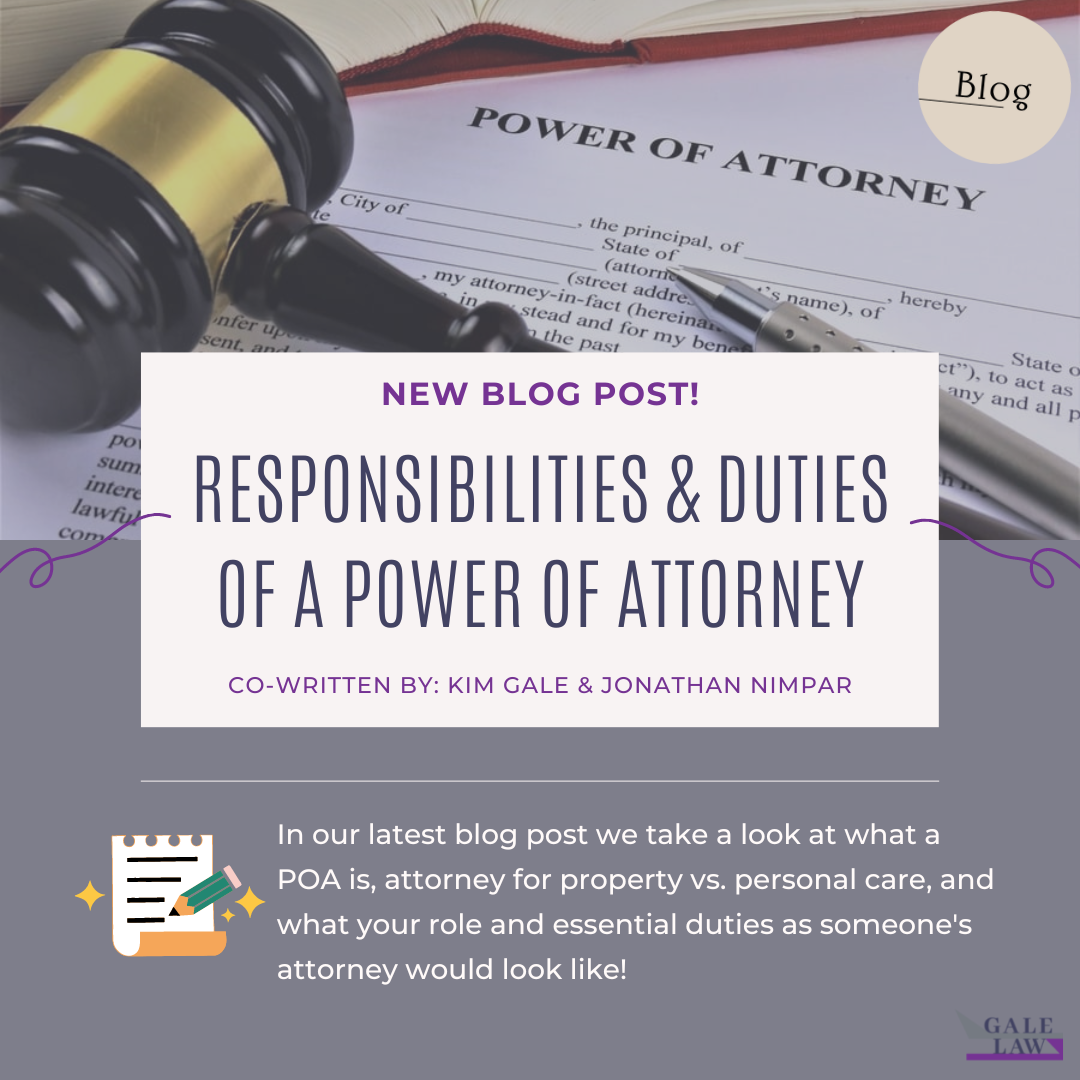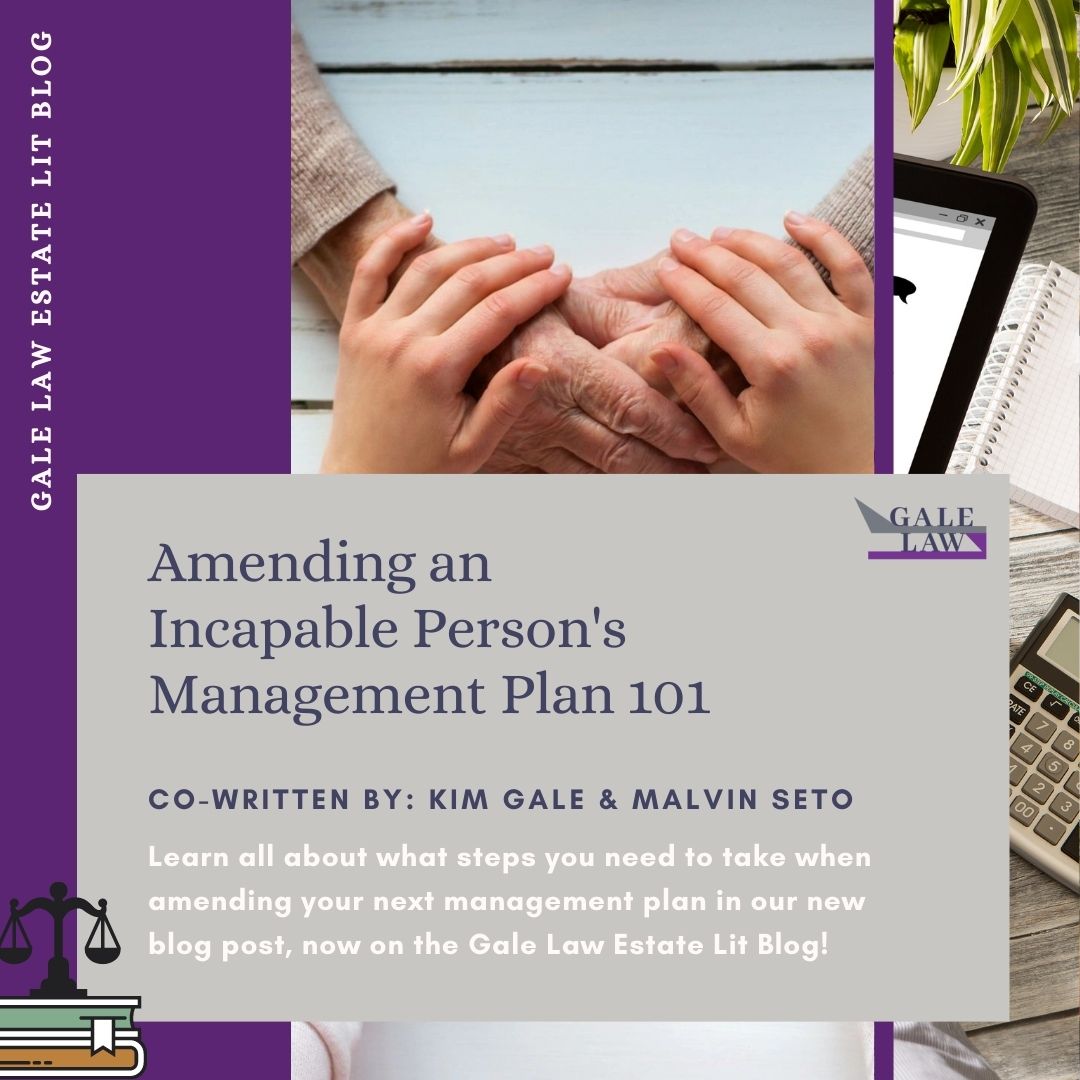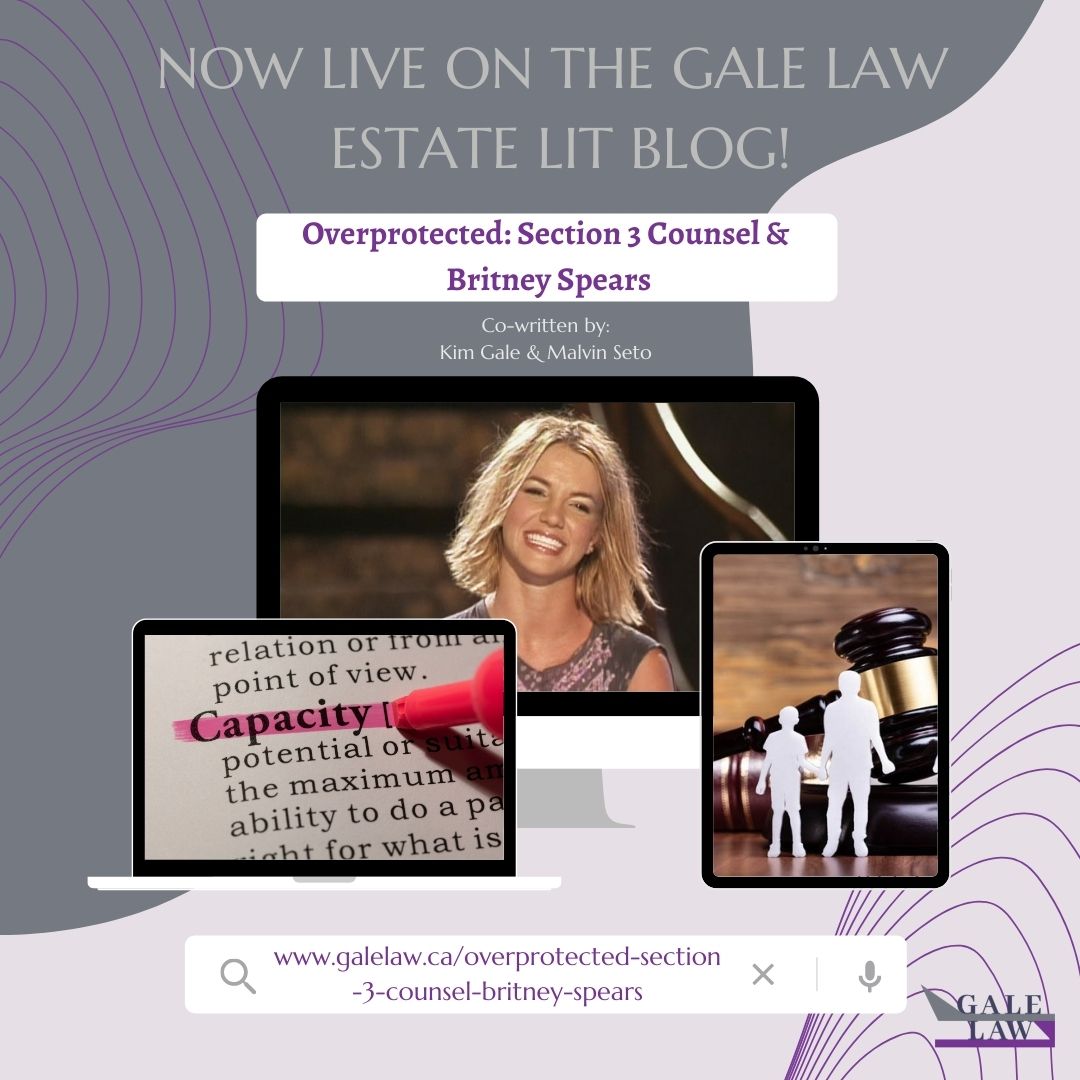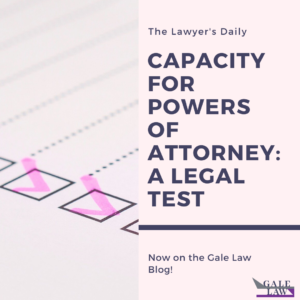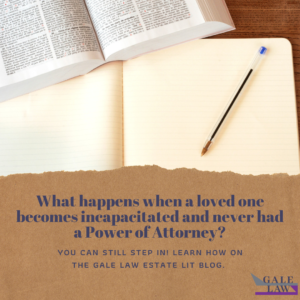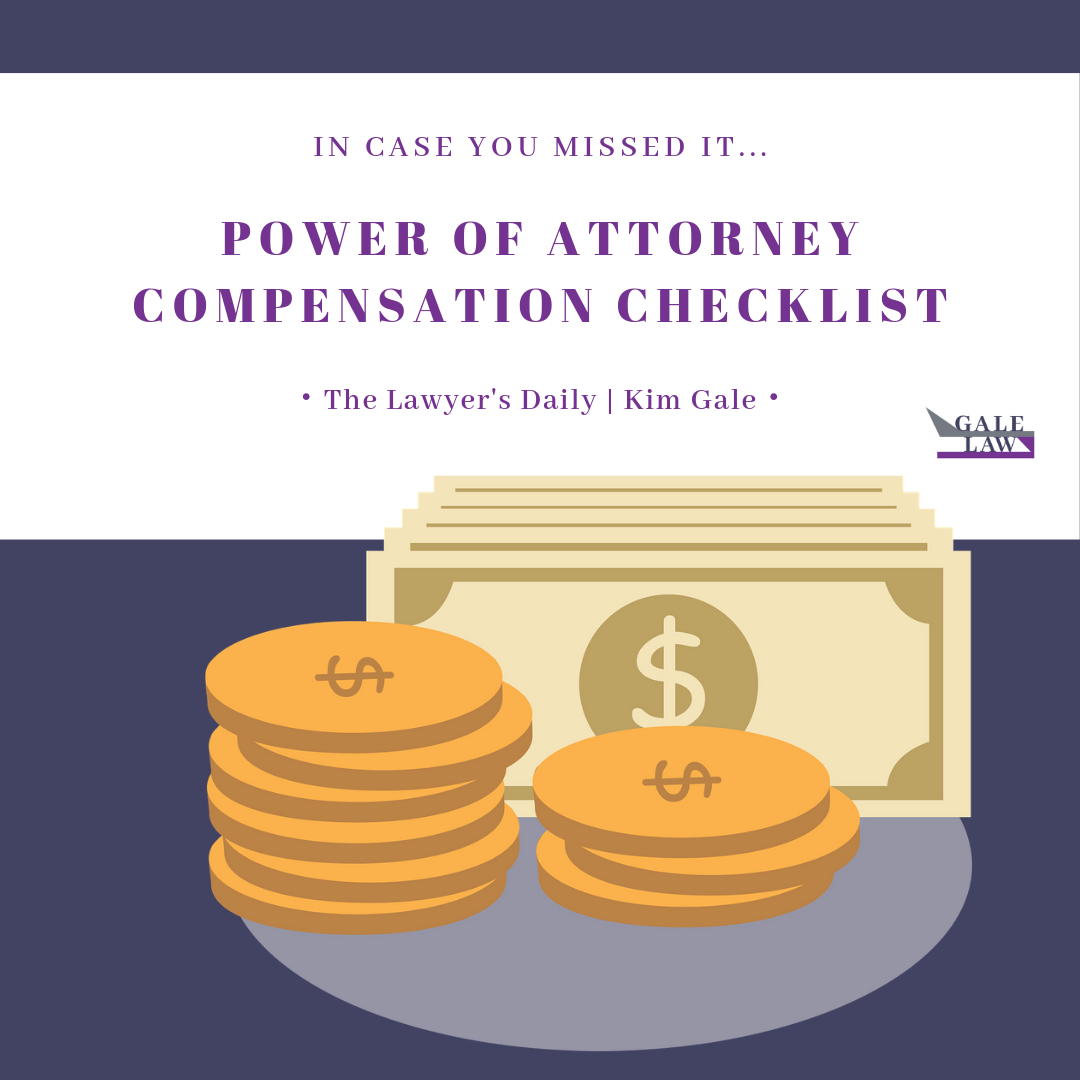
Co-written by: Kim Gale and Jocelyn Tatebe
In estate law, there is no single definition of capacity. Likewise, there is no “black and white” test that can be universally applied to all situations or types of decision-making. This is because capacity is specific to the decision required to be made and the circumstances. It can also fluctuate over time.
This article will provide a brief overview of the capacity required to make a will, powers of attorney, give a gift to someone during your lifetime and to enter into a marriage.
1. Capacity to make a will or testamentary document
Over the years, case law has provided some helpful criteria to consider when assessing an individual’s testamentary capacity to grant or revoke a will. Banks v. Goodfellow, (1870) L.R. 5 Q.B. 549 is often cited when an individual’s testamentary capacity is being challenged. This case outlines that the testator, or individual making a will, is required to:
- Understand the essential elements of making a will and its effects;
- Possess a relatively good idea of what assets they have and a general estimate of the value of those assets; and,
- Comprehend who might normally be expected to benefit under the will and the effect of excluding any such individuals.
Additional criteria include:
- A sufficient understanding and memory of the provisions they are making;
- A desire to dispose of their property upon their passing;
- Decision-making of their own volition, free from any mental disorders or undue influence from others; and,
- An ability to appreciate all the criteria as a
2. Capacity to make a power of attorney for property (POAP)
To make a valid POAP, you must be 18 years of age or older and be “mentally capable” of giving a POAP. This means that you must understand:
- What property you own and its approximate value;
- Any obligation that you may have to others who depend on your financially;
- What authority is being given to your POA;
- That the POAP must account for all the decisions that they make about your property;
- That you can revoke (cancel) your POAP (provided you are still capable of doing so); and,
- That the value of your property may depreciate over time even if managed properly by a
3. Capacity to make a power of attorney for personal care (POAPC)
An individual who is appointed as your POAPC has broad powers to make almost any decision regarding your personal care. This includes decisions regarding your health care, medical treatment, housing and safety.
To make a POAPC, you must understand:
- Whether the person you want to name as your POAPC is truly concerned about your well-being; and,
- The person you name may have to make personal care decisions on your
4. Capacity to make an inter vivas gift
If you want to give a gift to a loved one during your lifetime, called an inter vivas gift, you must exhibit:
- An intention to donate that is full, free and informed; and,
- The ability to substantially understand the nature and effect of the
5. Capacity to marry
In Ontario, the ability to marry is governed by s. 7 of the Marriage Act which states that “no person shall issue a licence to or solemnize the marriage of any person who, based on what he or she knows or has reasonable grounds to believe, lacks mental capacity to marry by reason of being under the influence of intoxicating liquor or drugs or for any other reason.”
Practically speaking, anyone of at least 18 years of age who wishes to get married must be capable of a basic understanding of the nature of a marriage contract. There is no requirement to understand all the consequences that flows from marriage. In the words of the U.K. court in Durham v. Durham (1885) 10 PD 80, which is often cited in claims to void a marriage or have a marriage declared a
nullity, a marriage is “a very simple [contract], which does not require a high degree of intelligence to comprehend.”
Key takeaway
The capacity required to make a will, a power of attorney for property and/or personal care, give an inter vivas gift or enter into a marriage are different and have varying degrees of capacity required as set out in legislation or case law.
If you have concerns about your capacity or the capacity of a loved one, you may wish to consider contacting a lawyer specialized in this area.
This article was originally published by Law360 Canada part of LexisNexis Canada Inc.

